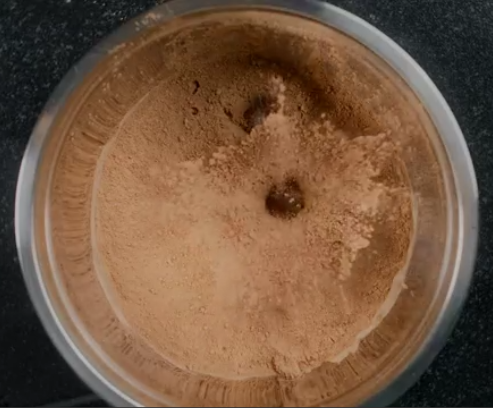Cocoa is derived from a plant called Theobroma cocoa that is born in South America and from which the seeds of the fruits are obtained. These seeds undergo a fairly complex processing divided into several stages:
- Fermentation. The seeds are collected and piled into baskets and wooden vats and then exposed to a temperature of between 40 and 50 degrees. At this stage the sugars turn into acids and eliminate what is left of the pulp and lower the bitter taste of the seeds.
- Drying. Exposure to the sun or through jets of hot air makes the product lose half its weight.
- Toasting. The temperature is kept around 100/150 degrees.
Various shelling, crushing and cleaning procedures. - Grinding. At this stage you mix different qualities of cocoa to get the desired taste and quality.
At the end of the processing you get a dough that will serve for all subsequent processing, but especially for the most important the :
Cocoa paste or cocoa mass
From this pasta that results in a very bitter taste, they are made with various processes:
- Cocoa butter : obtained by pressure and heat
- Cocoa powder : with fine grinding until you get a soluble powder in water.

Cocoa studies
As for the positive properties, from a health point of view, cocoa beans contain a significant amount of antioxidants: flavonoids, proanthocyanidins, catechins, epicatechins and in particular a phytosterol, beta-sitosterol to which are attributed protective actions on the development of cancer.
This study warns about the risk of high chocolate intake, which is positively associated with the risk of prostate cancer as total, advanced, localized and low-grade disease. However, the authors also pointed out that although high intake of antioxidants from supplements was associated with an increased risk for all prostate cancer subgroups except fatal cancer, this finding must be interpreted with caution because of the possibility of reverse causality (1). Which, if we interpret the study correctly, means that small amounts of cocoa have anti-inflammatory activity in our bodies, whereas excessive amounts may cause an adverse effect.
References____________________________________________________________________
(1) Russnes KM, Möller E, Wilson KM, Carlsen M, Blomhoff R, Smeland S, Adami HO, Grönberg H, Mucci LA, Bälter K. Total antioxidant intake and prostate cancer in the Cancer of the Prostate in Sweden (CAPS) study. A case control study. BMC Cancer. 2016 Jul 11;16:438. doi: 10.1186/s12885-016-2486-8.
![]() Cocoa powder
Cocoa powder 


